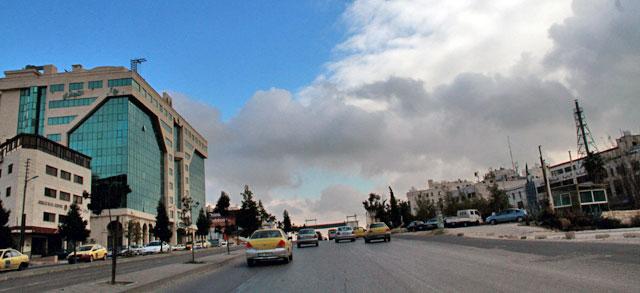You are here
Forty coldest days of winter to begin Monday — meteorologist
By Hana Namrouqa - Dec 20,2014 - Last updated at Dec 20,2014
AMMAN — Monday marks the winter solstice in the northern hemisphere and the start of marbaniyeh in Jordan — the 40 coldest days of winter, the Jordan Meteorological Department (JMD) said on Saturday.
As winter solstice passes on Monday, the sun will rise at 6:33am and set at 4:37pm, JMD meteorologist, Laila Shaheen said, noting that Monday will be the shortest day and the longest night of the year.
“Astronomically, winter starts on Monday in the northern hemisphere and summer starts in the southern hemisphere. On Monday the sun will be vertical over the Tropic of Capricorn, south of the Equator,” Shaheen told The Jordan Times.
Following the first day of winter, the days will start to become longer and nights shorter, until they become equal on March 20, which is the spring equinox in the northern hemisphere, according to the JMD.
During marbaniyeh, the local name given to the 40 coldest days of winter, the country typically witnesses several depressions, while average temperatures in the capital range between a maximum of 12.7ºC and a minimum of 3.8ºC, according to Shaheen.
Multiple depressions, very cold weather, and cold and dry easterly winds are characteristics of marbaniyeh, during which several frost spells take hold of the country due to the around-zero temperatures and very cold easterly winds, according to the JMD.
Shaheen underscored that the Kingdom usually gets 30 per cent of its long-term annual average rainfall of 8.3 billion cubic metres during marbaniyeh, noting that it ends on January 30.
The Ministry of Agriculture on Saturday issued instructions to farmers, cattle breeders and owners of fisheries to follow during marbaniyeh to avoid losses.
The ministry’s spokesperson, Nimer Haddadin, said that during marbaniyeh, the country is expected to witness several depressions, heavy rain and very low temperatures, which makes it imperative that farmers take precautionary measures and follow the daily weather forecast to protect their crops.
Farmers in the Jordan Valley should warm up greenhouses during the day and close them at night to preserve the heat, Haddadin said, adding that when temperatures dip to around zero, they should also burn dry grass near the crops and slightly water crops to minimise the impact of frost spells.
Meanwhile, the ministry called on cattle breeders to visit its directorates and veterinary clinics to receive vaccines and instructions, to keep newborn animals inside the barns, and to secure water and fodder inside there.
Related Articles
AMMAN — As Tuesday marks the winter solstice and the start of marbaniyeh — the forty coldest days of the year — the Ministry of Ag
AMMAN — Tuesday, December 22, marks the winter solstice in the northern hemisphere and the start of marbaniyeh in Jordan — the 40 coldest da
A wet air mass started affecting the Kingdom on Monday morning and will continue until Tuesday night, according to the Jordan Meteorological Department (JMD).












